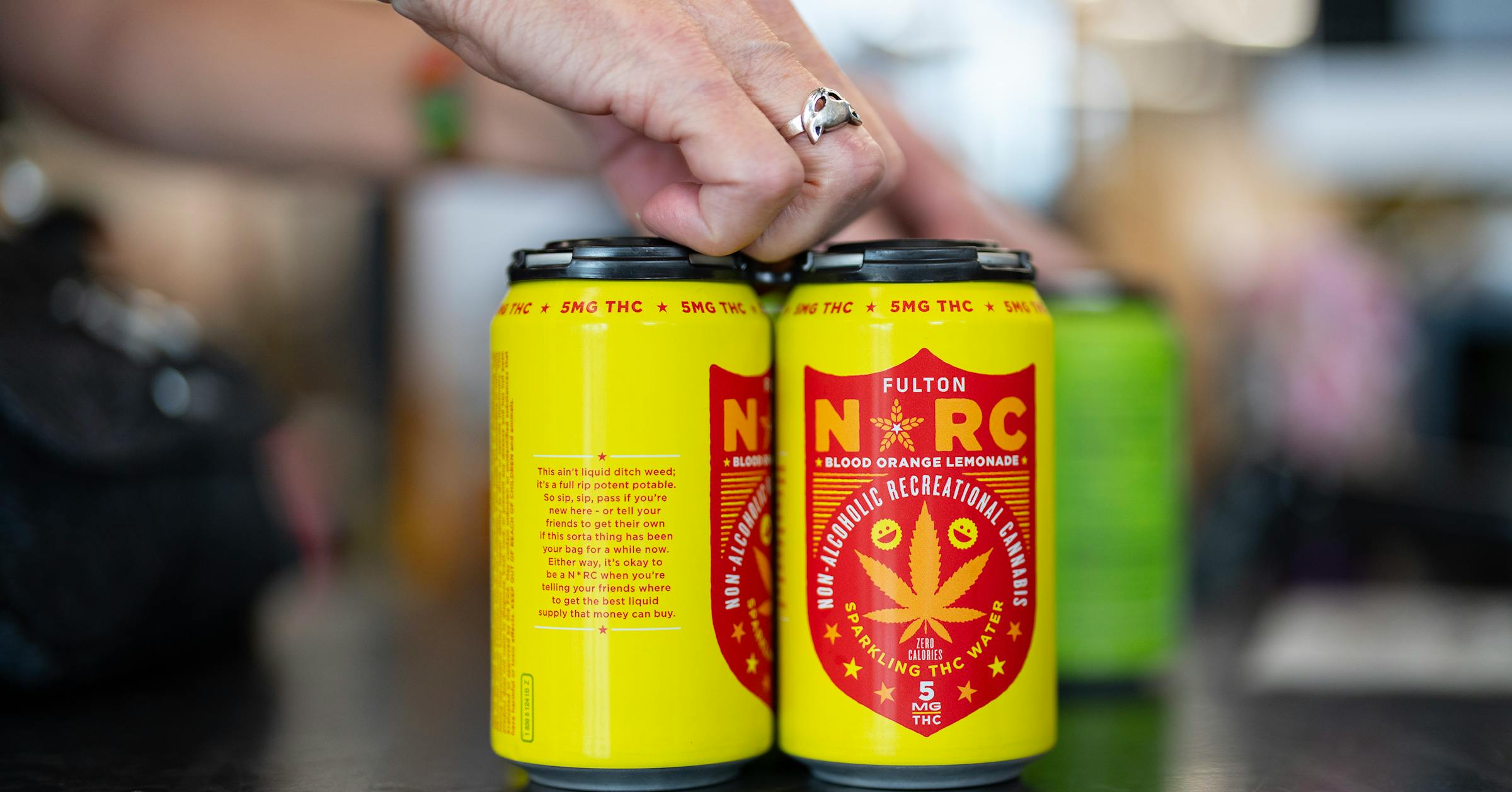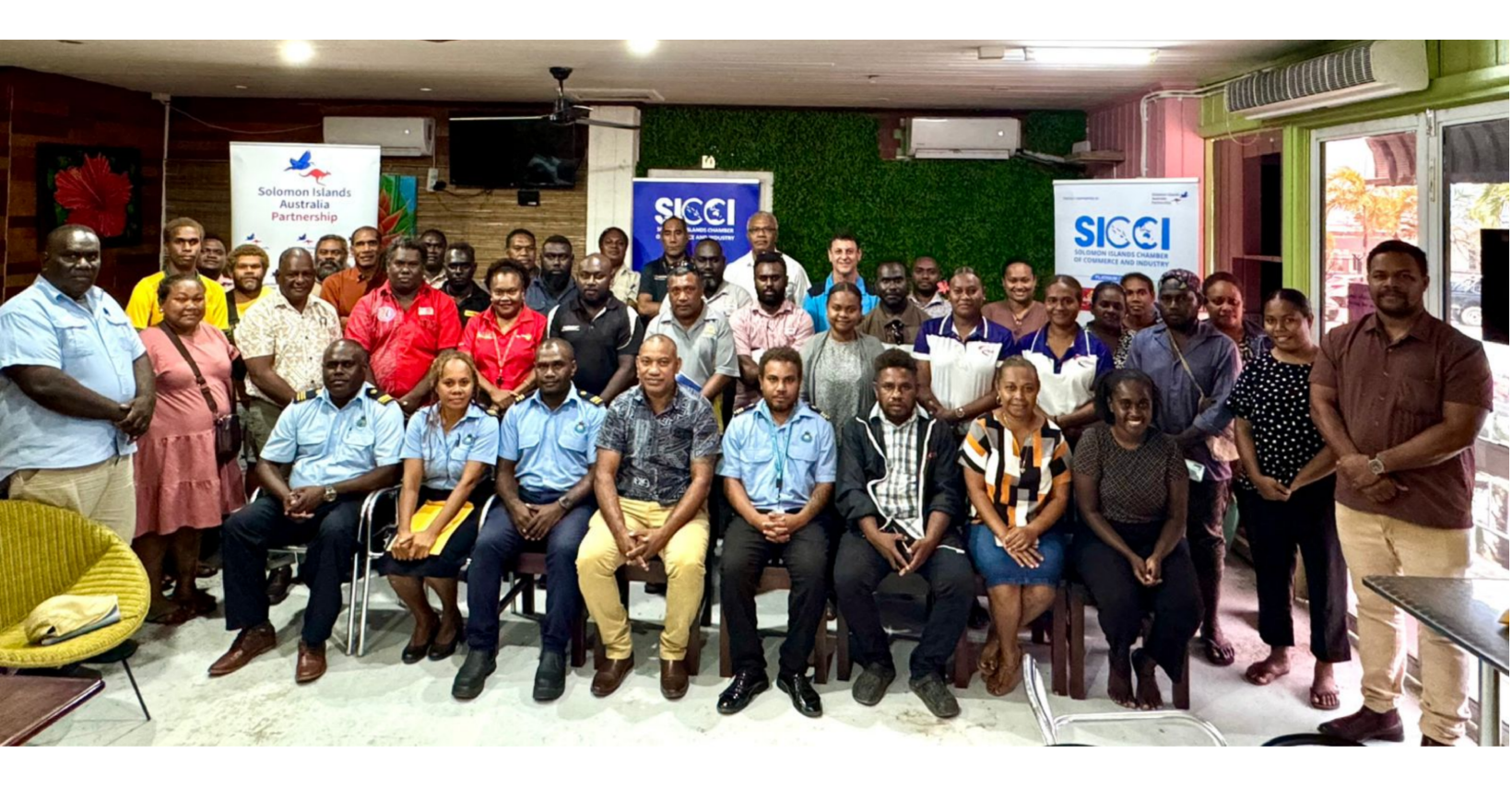
Now, under Minnesota Statute Chapter 342, all businesses that hope to continue to sell THC drinks have until Oct. 31 to apply for lower-potency hemp edible licenses.
That’s a big change from having no license requirement, though Halper said all Top Ten Liquor locations will complete the licensing process this month.
For the licenses, manufacturers must pay $1,250 up front and $1,000 to renew; retailers $500 per location up front and $250 annually.
“It has been the Wild West for the last two years, but that is changing,” said Jason Tarasek, a Minnesota attorney who represents cannabis businesses, who attended the meeting. “I don’t know if everyone who’s been selling these products is going to pay for a license.”
Mike Larson stands at the end of an isle shelved with THC beverages at the municipal liquor store Larson runs in St. Anthony on Jan. 23. He has seen an increase in THC beverage sales while seeing a decrease in alcohol sales. (Renée Jones Schneider/The Minnesota Star Tribune)
Testing delays and labeling issues
The THC drink retailers and businesses argue in the letter that without clarifications and adjustments to Minnesota law, the industry faces testing bottlenecks, labeling challenges and major economic fallout.
McElfresh, who previously worked as a chief compliance officer at a cannabis company in Massachusetts during its transition from medical-only to recreational sales, said “the testing times went from a week to 12 weeks.”
“That contributes to price increases and it hurts businesses,” he said.
With so many players in Minnesota, only having two labs could cause big bottlenecks.
THC infused beverages are for sale this week in a cooler at Elevated Beer Wine & Spirits in Minneapolis. (Alex Kormann/The Minnesota Star Tribune)
The strict labeling law could cause brands to stop selling in Minnesota. Plus, it causes immediate issues since the labels can’t be printed until license numbers are issued, the beverage makers said. That could give big players with more resources an advantage.
Halper said some hemp beverage brands outside Minnesota are unwilling to ship to his stores because they “don’t know what’s going on in Minnesota.”
The letter said three out-of-state beverage companies plan to stop selling in the state later this year.
It also said half of the state’s 240 craft breweries could be at risk, as well as stores that rely on THC beverage sales.
In a presentation during the Wednesday meeting viewed by the Minnesota Star Tribune, the state cannabis office provided the companies some clarification.
Until the end of 2025, businesses with low-potency hemp edible licenses can sell products under either the old rules or the new rules. Starting in 2026, all new products must follow the new rules, but older products tested before 2026 can still be sold until they expire or sell out.
Ariel Bernades pours a Minneapolis Cider Co. Trail Magic THC drink, raspbery basil flavored, into a glass for a customer at Minneapolis Cider Co. in Minneapolis. (Renée Jones Schneider/The Minnesota Star Tribune)
Next steps
Several business leaders, including representatives from Surly Brewing Co., Total Wine & More and Crooked Beverage Company, signed the letter to the state cannabis office. Copies were also sent to Gov. Tim Walz and legislative leaders from both political parties.
The coalition said a six-month extension of the compliance deadline to July 1 would provide critical breathing room to craft long-term solutions. Despite their concerns, the businesses stressed their willingness to collaborate with OCM, lawmakers and other stakeholders.
“We know that they’re restricted in their abilities because they’re regulatory, not legislative,” said Halper of Top Ten Liquors. “We just want them to delay the date so that we can go back with the legislators and fix it, but not create mass chaos.”
The cannabis management office said it is committed to continuing discussions with businesses to create proposals that “may ease” the transition without sacrificing “our duty to promote and protect public health and safety,” said spokesman Josh Collins.



